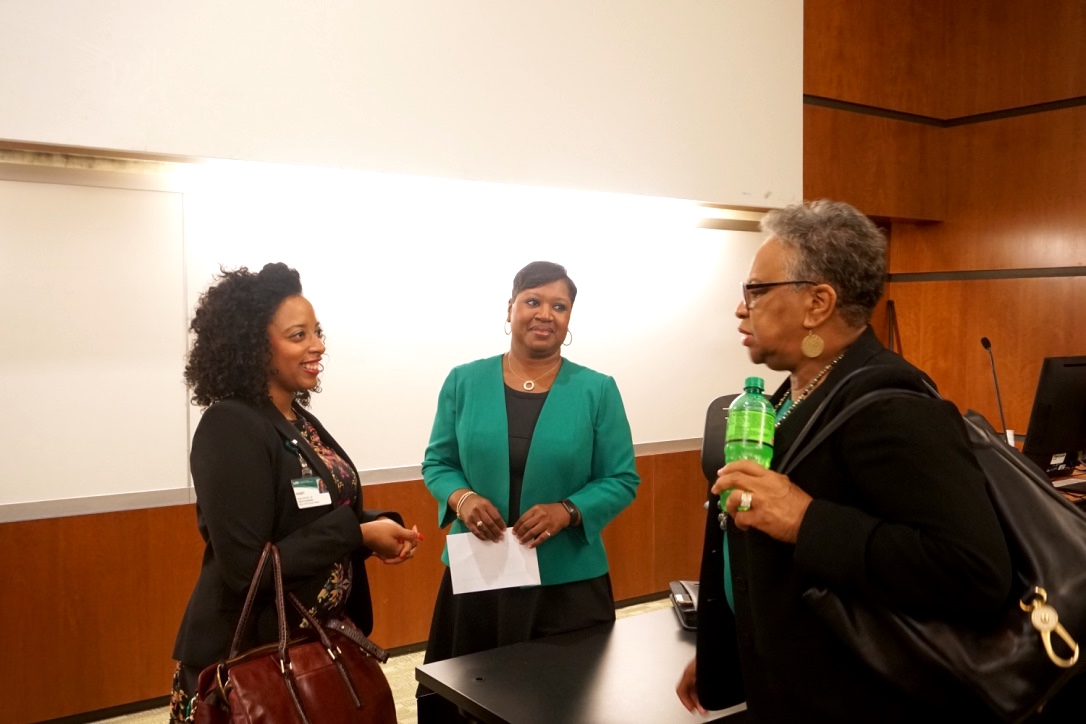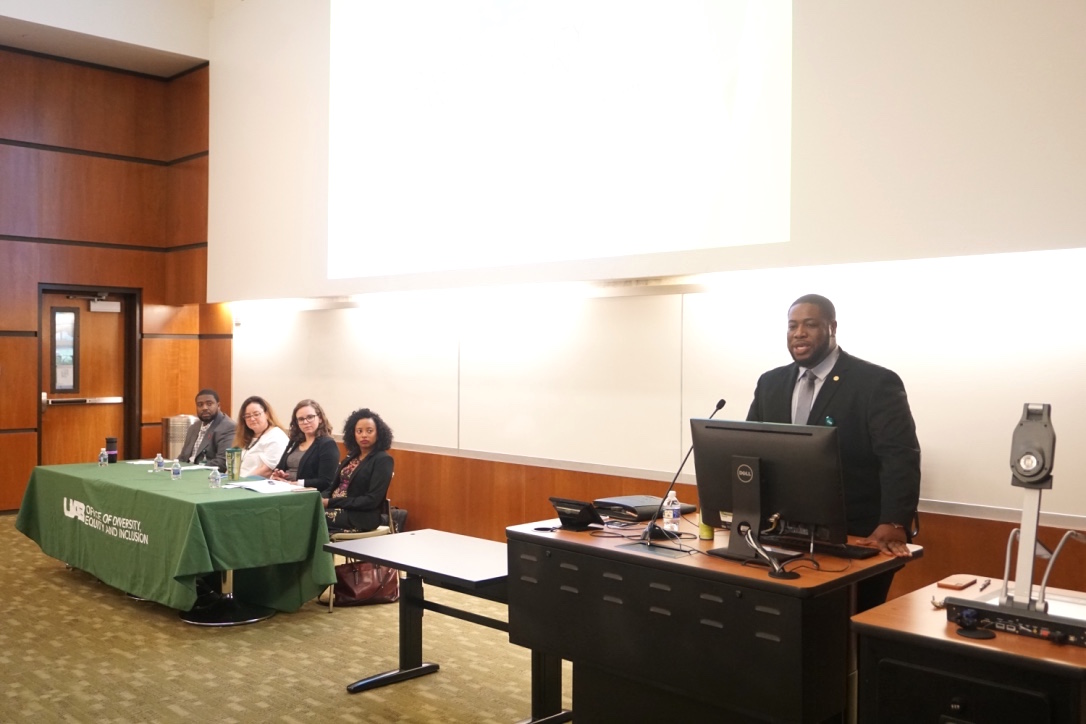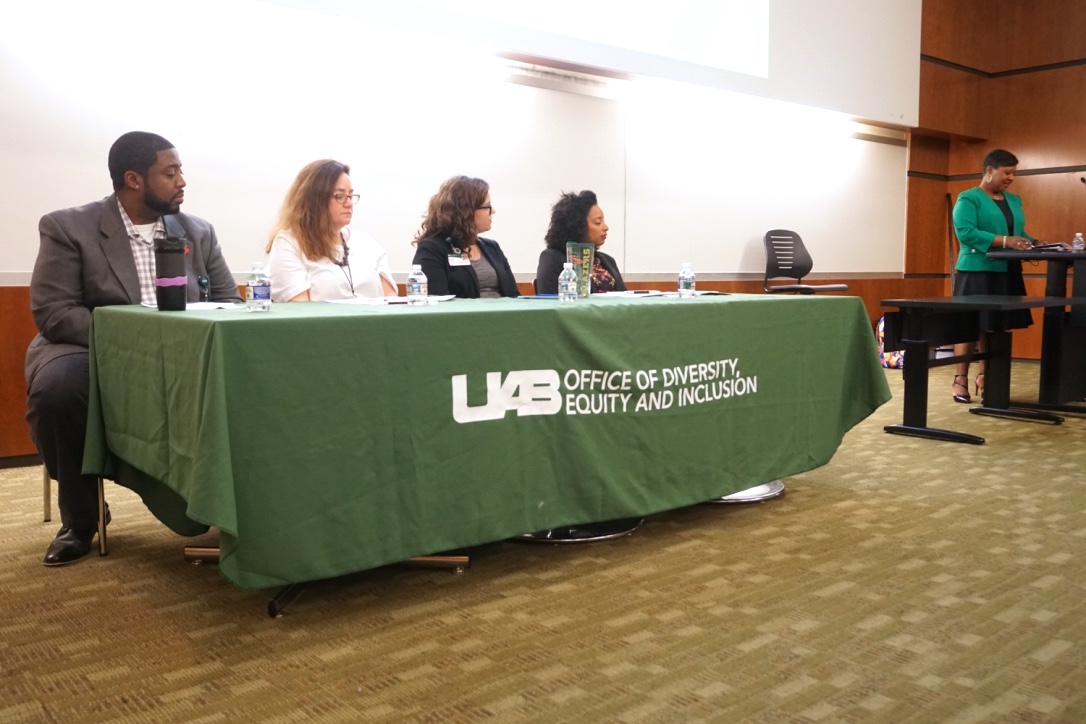
In 2006, experienced activist and advocate Tarana Burke created a reserved (low-key, underground, camouflaged) online safe space for survivors—focusing on female survivors of color—with the hashtag, #MeToo. Last year, that same two-word hashtag made an unexpected resurgence movement full of strength, support and awareness. Women (of every ethnicity, gender and sexual orientation) who would have never imagined speaking about their instances of abuse were able to step out of their comfort zone and create a safe space that continues to reach millions. The UAB Office of Diversity, Equity and Inclusion (ODEI) hosted a Critical Conversations dialogue with esteemed panelists to explore the impact #MeToo and other recent movements have had on college campuses, like UAB. Burke's movement continues to empower women to tell their stories, beginning a chain reaction for other sequential movements to start. Hashtags like #TimesUp and #WhyIDidntReport emerged from several allegations against high-profile individuals that were not handled properly and promptly dismissed. #MeToo ignited survivors of abuse to share stories and comfort across the globe.
Four panelists compiled of professors and representatives specializing in women’s issues, assault cases, psychology, and related topics were presented for the #MeToo dialogue. V.P. of Institutional Equity and Chair of UAB commission on the Status of women, Anita Clemon, introduced the panelists, such as UAB’s Title IX Coordinator, Kasey Robinson, J.D., and UAB’s director of Women’s and Gender Studies, Lisa Sharlach, PhD. Panelists’ primary focus was to answer student-submitted questions and to delve into the consequences resulting from sexual harassment allegations on high-profile names in political and entertainment spaces.

Anita Clemon introduced the topic, panelists, and acknowledged Dr. Ray Watts attendance of the event. Dr. Watts showed his support of Critical Conversations by stating, “We want to make sure that we are proactive, and everyone’s voice is heard...in a civil and respectful way.” Following his concluding words, Kasey Robinson begins with the importance of having this feminist movement. Ms. Burke solidified Robinson’s affirmation on Oct. 8 at UAB’s Alys Stephens Center during her Lecture Series presentation; during her presentation, Ms. Burke emphasized that there is a small window of opportunity open right now, and that it is imperative that we, as a nation, act now against sexual violence.
Student-written questions were read off by Anita Clemon for the panelists to answer. Question one helped distinguish the difference between the current hashtags being used for assault victim support:
“What is the difference from #MeToo and #Timesup?”
#TimesUp is an ally and survivor stance centered on another call to action: “The clock has run out on sexual assault, harassment and inequality in the workplace. It's time to do something about it,” stated on the #TimesUp homepage. #TimesUp is more of a catalyst for action than #MeToo, meant mostly for a safespace to share stories. Mandy Parente, panelist and UAB Interpersonal Violence Prevention Coordinator, reassures that, “the conversations have been moving to be more supportive of survivors,” and it is okay for survivors to not be vocal about their abuse. Not everyone is ready to share, but those who are should do so in a manner that continues the movement but is comfortable for themselves.
A related hashtag, #WhyIDidntReport, followed #MeToo and #TimesUp. The movement was a response to the Dr. Blasey Ford and Brett Kavanaugh hearing in September, where then S.C.O.T.U.S. nominee Kavanaugh was accused of assaulting Dr. Ford during their high school years. The hashtag allows others to post their reluctances stemming from societal stigma on speaking up when they were assaulted. Judgement, bullying and fear of their assailant are some of the most frequent reasons victims remain silent.
Another student question card is read:
“How is consent defined?”

According to Dr. Lisa Sharlach, consent varies from country to country. In India, marital rape as a crime does not exist. A woman is always deemed to give her consent to her husband. In the United States, marital rape was recognized in all 50 states in 1994, confirmed the panelists. As for the defined words of consent, the states each define them differently. RAINN (Rape, Abuse & Incest National Network) states that in California, a state with more inclusive and beneficial consent laws, consent is defined by “freely-given consent” that requires positive cooperation on both sides to partake in any act. RAINN also states that in Alabama, the laws of consent are more specific and rely on physical force or obvious threat for prosecution. With more specific guidelines on consent, less accusations will be deemed assault/harassment, allowing assailants to go free. Organizations like RAINN are pushing for revisions on state consent laws. To make things easy, Ms. Kasey Robinson pointed out, “they need to give actual, verbal consent,” they being any partner/participant in a sexual act. Ms. Parente follows, “what is stalking? What is dating violence? These conversations are needed.” Questions followed on how power and position plays into assault within a workplace or school. The panelists explained that recognizing yourself within a space can help avoid confusion or manipulation of your colleagues when put in a high-level position. For both parties, setting professional boundaries is key.
As the panelists conclude with their last set of questions answered, they left students with these thoughts in mind: “ How can you be a person that promotes change?” asked Ms. Robinson. Ms. Parente adds, “become a promoter of wellness. Join the consent committee.” Getting involved on-campus is the first step a student can take. Organizations like U.R.G.E, Generation Action, Title XI chapter at UAB and more focus on bringing awareness to sexual health and sexual violence prevention.
Looking to get involved? Contact the Office of Diversity, Equity and Inclusion at 205-35294-0103, or email them at inclusion@uab.edu. Their office is located at UAB’s 336 Administration Building on 20th St. S.